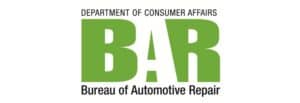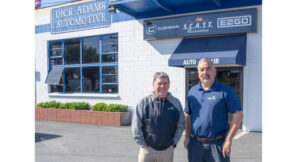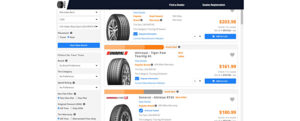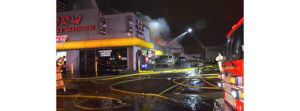Sacramento—Every year, hundreds of new laws are enacted that impact California automotive repair dealers. Below is a brief summary of the key measures that took effect Jan. 1, 2020, unless otherwise noted.
• Minimum Wage Increase. Reminder that effective Jan. 1, 2020, the minimum wage for employers with 26 or more employees will increase to $13.00 per hour. The minimum wage for employers with 25 or fewer employees will increase to $12.00. (SB 3 of 2017) Local minimum wage may be higher.
• Unsafe Used Tires. Prohibits an automotive repair dealer from installing a used unsafe tire as specified. (AB 949)
• Lead Acid Battery Fees Increase. Beginning April 2022, the current $1.00 California battery fee imposed on a person who purchases a replacement lead-acid battery from a retail dealer (including auto repair dealer) will increase to $2.00. (AB 142)
• Automobile Collision Policy. This law restates that an insured has the right to select the auto body shop of choice to repair a damaged vehicle, or decide not to have the vehicle repaired; however, an insurer may require that a damaged vehicle be repaired as a condition for payment if the damage is sufficiently serious that safety features of the vehicle’s operating systems are compromised. (AB 1538)
• Vehicle Exhaust System “Fix it” Ticket. Updates the noise standards for vehicle exhaust systems, and modifies existing law to allow an individual who is arrested or cited for a violation of noise standards to fix the noise violation and provide proof of correction instead of facing other enforcement actions, unless the violation consists of modifying the exhaust system of a motorcycle. (SB 112)
• Permanent Diagnostic Trouble Codes. On July 1, 2019, the BAR incorporated Permanent Diagnostic Trouble Codes (PDTCs) as part of the Smog Check failure criteria for model-year 2010 and newer vehicles. 16 CCR 3340.42.2(c)(5)
• Smog Check Stations Enrollment with OnCore. The BAR’s contract with SGS Testcom supporting the maintenance and operations of the California Vehicle Inspection System expired on October 31, 2019. The contract was awarded to OnCore Consulting LLC. The new contract reduces the Smog Check communication fee assessed to smog stations from $1.08 per inspection to $0.7036 per inspection. Stations must have enrolled with Oncore by November 1, 2019 to continue in the smog check program.
• Service Bulletins and Electronic Authorizations. This law permits a new motor vehicle dealer to receive electronic authorization from consumers for any repair of a manufacturer recall consistent with regulations adopted by the BAR. (AB 596)
• Heavy Duty Vehicle Smog Inspection. Requires the state Air Resources Board, in consultation with the BAR and other specified entities, to implement a pilot program that develops and demonstrates technologies that show potential for readily bringing heavy-duty vehicles (GVW of more than 14,000 pounds) into an inspection and maintenance program. (SB 210)
• California Consumer Privacy Act (CCPA). Beginning January 1, 2020, this new law, in part, would grant a consumer the right to request a business to disclose the categories and specific pieces of personal information that it collects about the consumer, the categories of sources from which that information is collected, the business purposes for collecting or selling information and the categories of third parties with which the information is shared. (AB 375-2018). Several new laws passed to clarify and to ease CCPA compliance including a narrow opt-out and deletion rights in order to facilitate prompt and effective recalls and warranty work. (AB 1146, AB 25, AB 874, AB 1355 and AB 1564).
• New Motor Vehicle Board. This new law, among other things, requires car manufacturers to reimburse franchised new car dealers for warranty repairs based on a specified formula instead of using the existing practice of determining a reasonable rate and recasts other exiting provisions of the relationship between manufacturers and dealerships. (AB 179)
• Sexual Harassment Prevention Training Deadline Extended. Extends the original compliance deadline associated with SB 1343 (passed in 2018), which requires all employers with five or more employees to provide two hours of sexual harassment training from January 1, 2020 to January 1, 2021. (SB 778)
• Independent Contractor or Employee? This new law provides factors of the “ABC” test, as specified, to determine the status of workers as employee or independent contractor. The law also provides an exemption between business-to-business provided that vendor meets the specified independent contractor criteria. (AB 5)
• Extension of FEHA Statute of Limitations. This new law extends the deadline to file an allegation of unlawful workplace harassment, discrimination, or civil rights-related retaliation under the Fair Employment and Housing Act from one year to three years. (AB 9)
• Prohibition of Arbitration Agreements. This new law, among other things, prohibits employers from requiring employees or applicants to waive any right, forum, or procedure for a violation of the Fair Employment and Housing Act or the Labor Code as a condition of employment. (AB 51). Also, SB 707 requires the employer (for an employment-related arbitration agreement) to pay for certain fees and costs before an arbitration may proceed.
• Failure to Pay Wages – Penalties. In addition to existing penalties that an employee may recover for an employer’s failure to timely pay an employee’s wages, this new law authorizes the affected employee to bring action to recover statutory penalties against the employer to recover unpaid wages. It also authorizes an employee to either recover statutory penalties under these provisions or to enforce civil penalties under Labor Code section 2699(a), the Private Attorneys General Act of 2004 (“PAGA”), but not both, for the same violation. (AB 673)
• Expansion of Lactation Accommodation Requirements. Expands existing law relating to lactation accommodation to add a number of new requirements for the lactation space itself, including access to running water and a refrigerator for storing milk, as well as employer policy requirements and document retention obligations. (SB 142)
• Hairstyle Discrimination. This new law expands the Fair Employment and Housing Act’s definition of race to include traits historically associated with race, such as hair texture and protective hairstyles. It defines “protective hairstyles” as “braids, locks, and twists.” It also prohibits workplace dress code and grooming policies that prohibit natural hair, including afros, braids, twists and locks. (SB 188)
• Paid Family Leave. Amends exiting law and increases the maximum wage replacement benefits under the California Paid Family Leave program from six to eight weeks, beginning July 1, 2020. (SB 83)










Comments are closed.